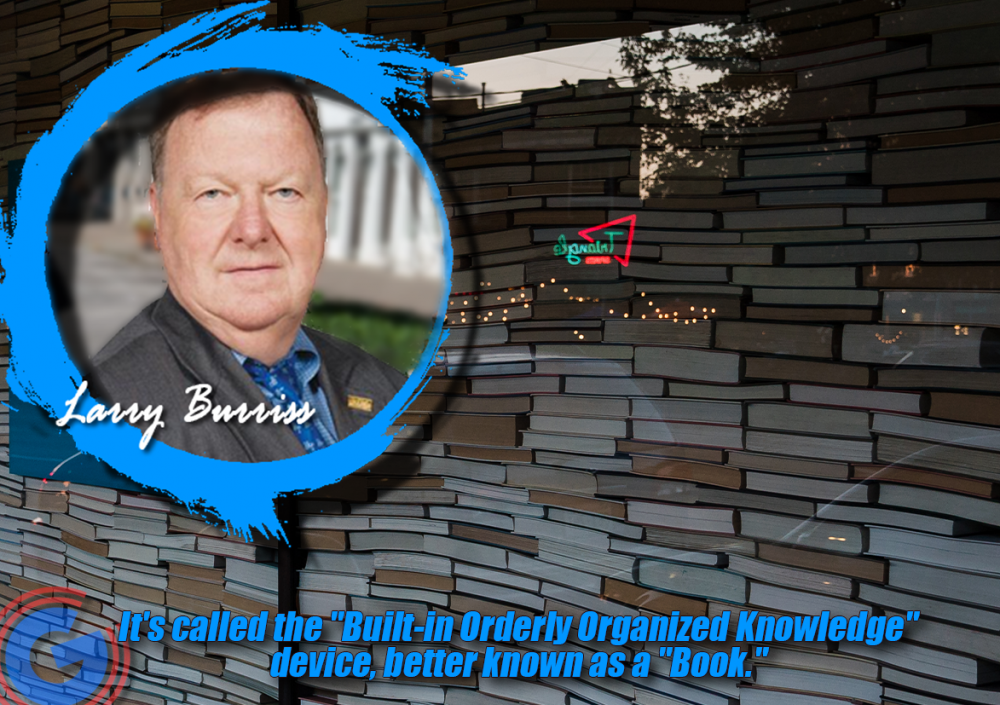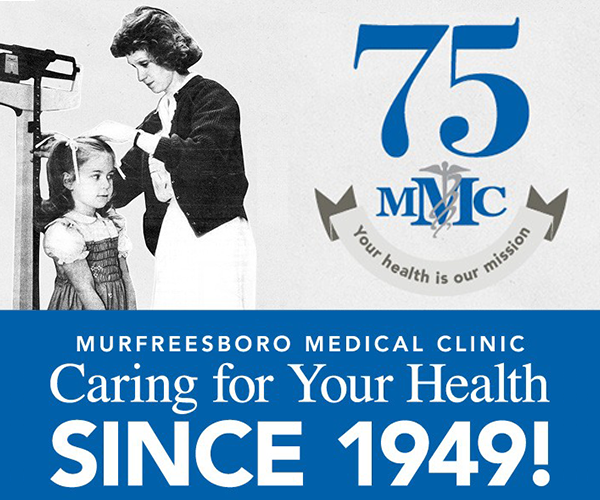Today's media commentary by MTSU Professor Larry Burriss takes a look at books and what we do with them, and a look back in time. Listen by pushing the PLAY button above.
Verbatim: “We don't often do product reviews here, but I thought you might be interested in something I read about in a couple of newspapers recently. It's called the "Built-in Orderly Organized Knowledge" device, better known as a "Book."
It's a revolutionary breakthrough in technology; it needs no wires, electric circuits or batteries, and has nothing to be connected or switched on. And you don't need to remember a password to use it.
In fact, it's so easy to use a child can do it: just lift its cover and you're there! Compact and portable, the "book" can be used anywhere - even sitting in an armchair by the fire - yet it's powerful enough to hold as much information as a megabyte disc drive.
Here's how it works: Each "book" is constructed of sequentially numbered sheets of paper, usually recyclable, each capable of holding thousands of bits of information. These pages are locked together with a custom-fit device called a binding, which keeps the sheets in their correct sequence. Opaque Paper Technology allows manufacturers to use both sides of the sheet, doubling the information density and cutting costs in half.
Experts are divided on the prospects for further increases in information density; for now, "books" with more information simply use more pages. This makes them thicker and harder to carry, and has drawn some criticism from the mobile computing crowd.
Each sheet is scanned optically, registering information directly into your brain. A flick of a finger takes you to the next sheet. The "book" may be taken up at any time and used by merely opening it. The "book" never crashes and never needs rebooting, though like other display devices it can become unusable if dropped into water.
The browse feature allows you to move instantly to any sheet and move forward or backward as you wish. Most come with an index pinpointing the exact location of any selected information for instant retrieval.
You can also make personal notes next to "book" text entries with an optional programming tool called a "Portable Erasable Nib Cryptic Intercommunication Language Stylus," also known as "Pencils".
An optional "bookmark" accessory allows you to open the "book" to the exact place you left it in a previous session - even if it's been closed. "Bookmarks" fit universal design standards, so a single one can be used in "books" by various manufacturers. Conversely, numerous bookmarks can be used in a single "book" if the user wants to store numerous views at once.
The number of bookmarks is limited only by the number of pages in the "book."
The medium is ideal for long-term archival use; several field trials have proven that "books" will still be readable in several centuries, and because of its simple user interface it will be compatible with future reading devices.
Portable, durable and affordable, the "book" is the entertainment and educational wave of the future. The "book's" appeal seems so certain, thousands of content creators have committed to the platform. Look for a flood of new titles coming to your favorite store soon. - I'm Larry Burriss”
About Dr. Burriss - Larry Burriss, professor of journalism, teaches introductory and media law courses. At the graduate level he teaches quantitative research methods and media law. He holds degrees from The Ohio State University (B.A. in broadcast journalism, M.A. in journalism), the University of Oklahoma (M.A. in human relations), Ohio University (Ph.D. in journalism) and Concord Law School (J.D.). He has worked in print and broadcast news and public relations, and has published extensively in both academic and popular publications. He has won first place in the Tennessee Associated Press Radio Contest nine times. Dr. Burriss' publications and presentations include studies of presidential press conferences, NASA photography, radio news, legal issues related to adolescent use of social networking sites, legal research, and Middle Earth.
Dr. Burriss has served as director of the School of Journalism, dean of the College of Mass Communication and president of the MTSU Faculty Senate. He was appointed by Gov. Phil Bredesen to serve on the Tennessee Board of Regents. He was a lieutenant colonel in the U.S. Air Force and served on active duty in Mali, Somalia, Bosnia, Central America, Europe and the Pentagon.






